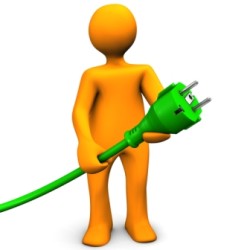Surge Protectors Are a Small Investment With a Huge Return
As a homeowner, you make large investments in your home’s comfort when you purchase heating and cooling systems. Your air conditioner, heat pump, furnace, ductwork or any other major HVAC component is something you need to protect. One risk that is often overlooked is a power surge, which can seriously damage unprotected appliances and electronics. And that includes your A/C or heat pump.
A power surge is a sudden, powerful increase in electricity that can damage or break most electrical equipment. Depending on where you live, there may be up to 300 potentially damaging power surges a year.
While lightning is an obvious source of a power surge, most surges are caused by electrical issues right inside your home. Following are the most likely sources of household electrical surges:
- Dishwasher motor
- Washer and dryer motors
- Refrigeration motor
- A/C condenser motor
- Pumps
These household surges are not nearly as powerful as lightning (which likely will destroy electrical equipment whether it’s protected or not), but they’re still potentially dangerous.
How to Protect Your Home from Surges
There is a simple solution to protect the electronic equipment in your home. Inexpensive surge protectors prevent against any moderate changes to electrical current in your home or coming into your home.
You generally have two options when it comes to surge protectors:
- Service entrance protector: These protectors control the electrical current coming into your home.
- Point-of-use protector: This type of protector connects to an outlet in your home and controls the current flowing into any equipment plugged into it.
If you want the maximum protection for your home’s expensive equipment, employ both types of surge protectors. This provides protection against all types of surges, short of a cataclysmic lightning strike, and can save you from potentially expensive repairs or replacements.
To get more information on using surge protectors effectively in your Martin, Indian River or Palm Springs county home, contact NisAir Air Conditioning & Heating.

